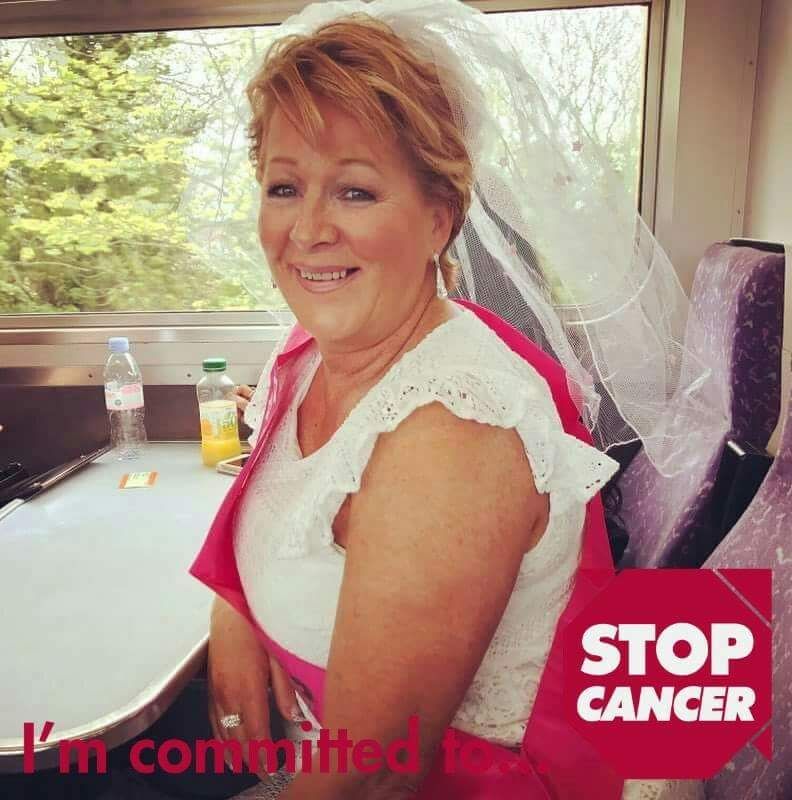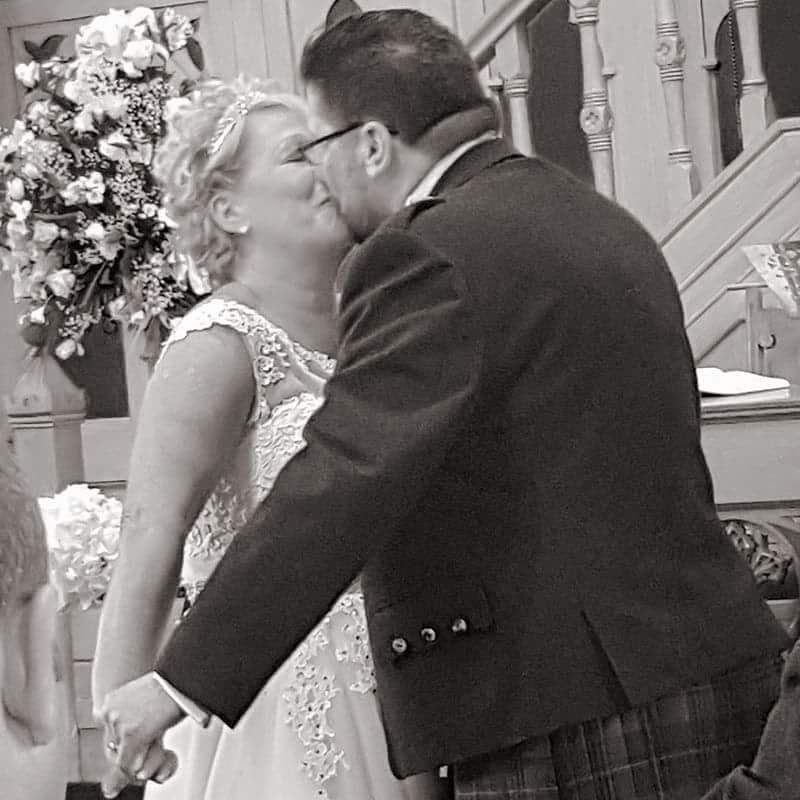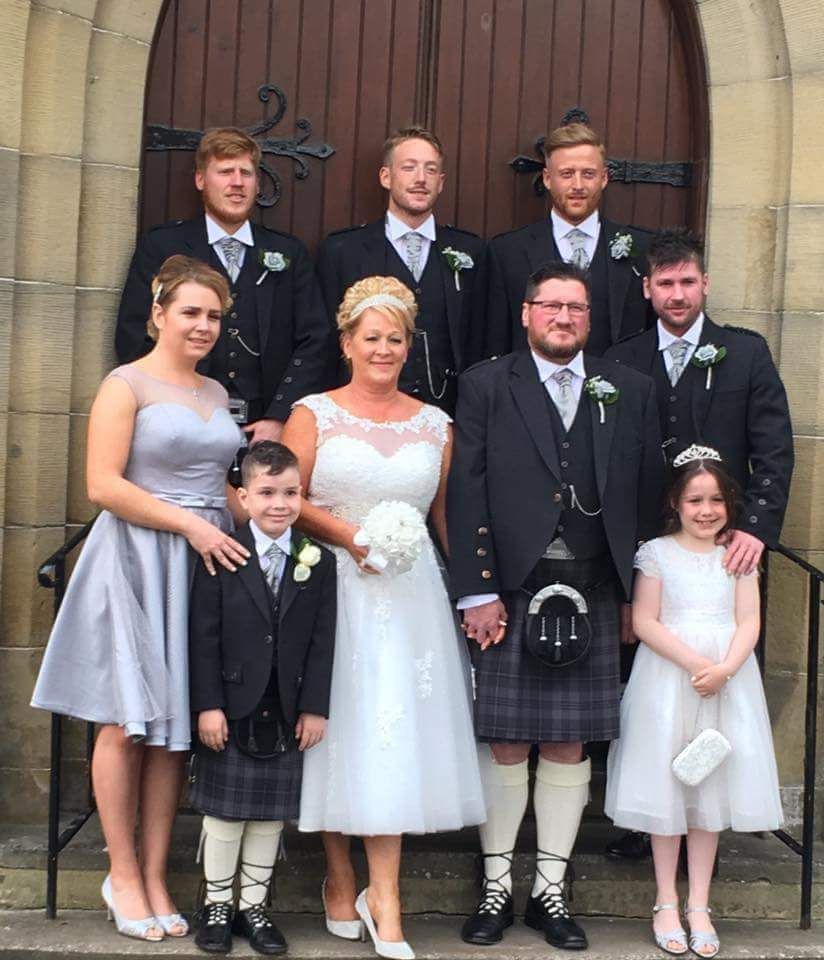At first, I chalked it up to menopause. The bloating, the heavy bleeding, and the exhaustion were probably part of being a woman in my mid-50s, I told myself. I hadn’t missed a pap smear; I exercised-what else could it be? But when my doctor heard my concerns, she did a full internal exam, which is more comprehensive than a yearly exam and pap. Soon after, I learned that she found a tumour and I had ovarian cancer. I have two kids, two grandchildren, and I had just started dating a wonderful man named Robert. After having known him for 10 years, we had finally gotten together. Now, I feared it might all fall apart.

My doctors told me a hysterectomy, appendectomy and 18 weeks of chemotherapy would hopefully clear it. While I was relieved, I knew that spending all my time in the hospital during the early phases of a relationship wasn't ideal. “If you want to go, you can go,” I told Robert, after explaining my diagnosis and treatment plan. I told him I would completely understand if didn’t want to stay with me while I was sick. He was newly single after a divorce, and he had a life to live. He looked at me and didn’t miss a beat before telling me that he wasn’t going anywhere. He was by my bedside, helping to care for me until we heard the words “remission.”
Facing a terminal diagnosis
One year later, though, I went back for a routine scan, and Robert came with me. That’s when I found out my ovarian cancer was back and it had spread to my bowel and liver. This time, it was inoperable and terminal. The only thing my doctors could do was start palliative care. At best, my doctor said, I would have a few years left. As this started to sink in, I realised that I had two choices: to dwell on the unfairness and sadness of my diagnosis or live the rest of my life to the fullest with my family and Robert. We had fallen in love, and although we wouldn’t have much time left together, I knew I wanted to make the most of it.
Time with my family is the only thing on my bucket list.
When Robert heard the doctor say “terminal,” he was absolutely devastated. Where I am a realist, he’s more of an optimist. Ovarian cancer is aggressive, and I always knew that this diagnosis was a possibility. But Robert never imagined this could happen to me. We had five kids between us, and we had just built this family, he told me. “We finally got together after all this time,” he said, defeated. It wasn’t fair. It wasn’t my time.
In my eyes, though, I knew it was my time, and we'd have to accept it. I had done everything right and this still happened. I hugged him, and I did my best to bring him the peace I felt amidst the sadness. Yes, I said, we’ve finally gotten together after all these years of knowing each other, but now we get to spend these next years knowing they’ll be our last together. “We’re going to cherish every moment,” I said. That’s just what we’ve done since.
Of course, it hasn’t been easy. Telling our children I had terminal cancer, and seeing them cry, was the hardest thing I’ve ever done. I try to remind everyone that it’s okay to take time to grieve, but it’s more important than ever to spend time making memories with each other. Time with my family is the only thing on my bucket list.

For Robert, coming to terms with the fact that I was going to die got easier after he turned to counselling services at our local hospice. There were questions Robert had about cancer and about planning for death that he, understandably, didn’t feel comfortable asking me. Because he’s always had a professional to talk to when he needs one, we can spend all of our remaining time laughing, talking and having our family over for dinners. We also spent much of it planning our dream wedding.
Celebrating life and love after a terminal diagnosis
Shortly after Robert and I started dating, we knew we wanted to get married. But cancer came at us so fast; I wasn’t sure if we would be able to have the wedding I pictured. When we learned my cancer was terminal, it was his idea to combine a big, beautiful wedding with a “living wake.” This way, all of our friends and family could celebrate with us, and for many of them who live further away, have a chance to say goodbye.
Our wedding was magical-it was a night when cancer didn’t matter. Surrounded by 170 guests, getting married to a wonderful guy, I wouldn’t trade it for the world.

Since the wedding, I’ve been spending my time writing notes and making memory boxes with pictures to leave my family and friends. I also organised a charity event to raise money for the hospice that supported us, arranged the details of my end-of-life care and I make sure to tell everyone I love how much I love them every day.
After a scan last April, my doctor told me it was unlikely I’d live until next April. That’s a few days from now, but I’m determined to make it to my first anniversary with Robert this May. Until then, I’ll be living every day to the fullest. I’m not scared of dying-we all die. I’m going to have a ball while I’m here.






.png&h=193&w=250&c=1&s=1)
.png&h=193&w=250&c=1&s=1)


